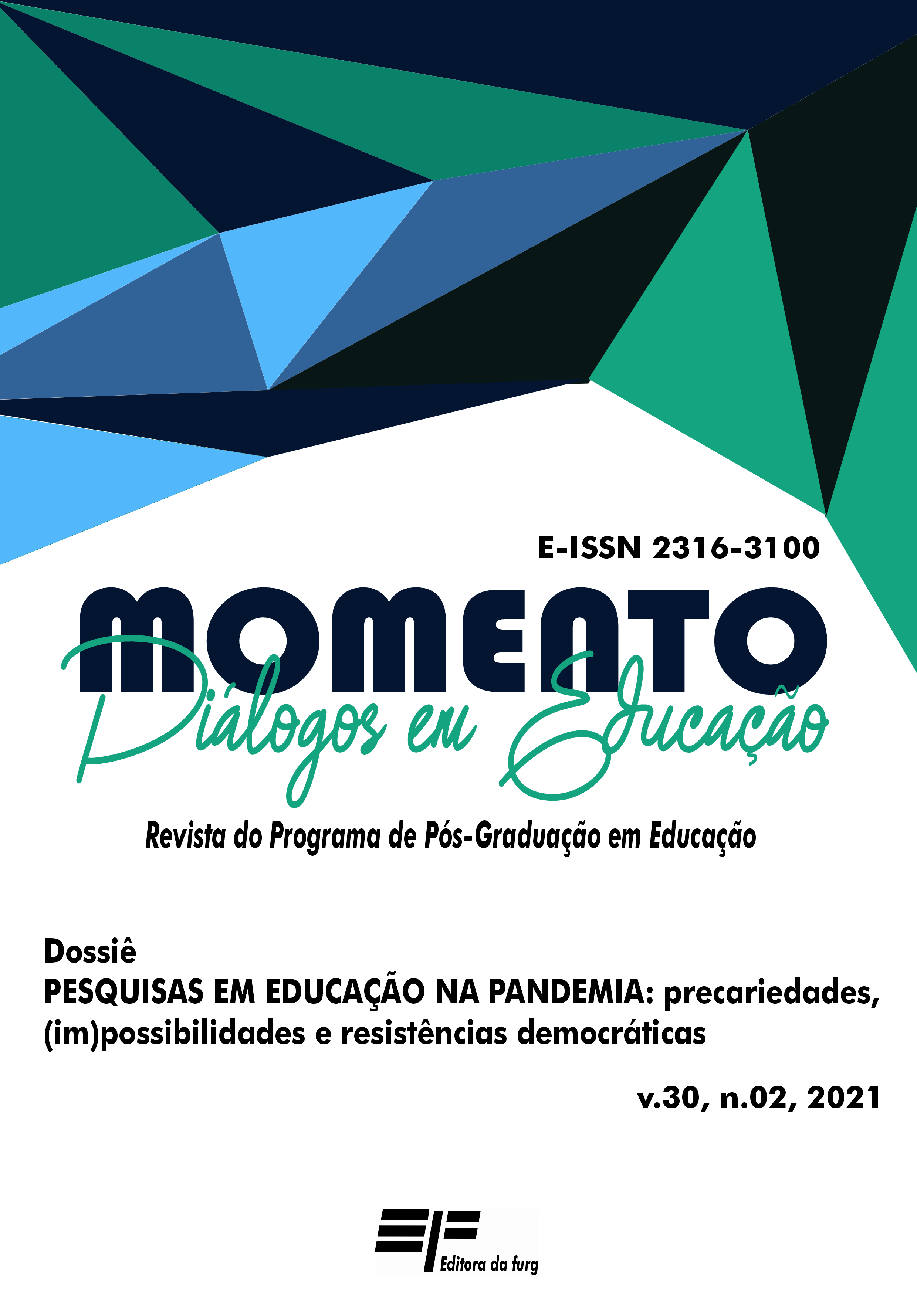COTIDIANO ESCOLAR E PANDEMIA DE COVID-19 NA AMAZÔNIA
DOI:
https://doi.org/10.14295/momento.v30i02.13216Keywords:
Narrativas docentes, Cotidianos escolares, Pandemia de Covid-19, Educação na AmazôniaAbstract
The year 2020 will be marked worldwide by the Covid-19 pandemic, which in Brazil has already victimized more than 500,000 lives, until the date we wrote this text (06/2020). From 03/16/2020, face-to-face classes were suspended in public and private networks throughout the State of Amazonas and in most Brazilian states. In this context, there were and are many alternatives presented and there are many discourses around the continuity or not of school activities. After more than a year of pandemic, some school systems have already experienced the face-to-face return of activities with a reduced number of students and other strategies to try to maintain the health and safety of the school community. In the State of Amazonas, the public network has already returned with face-to-face classes, ignoring the dizzying increase in cases in the state and in the country. The main objective of the research we developed is to seek narratives from teachers on the impacts of covid-19 on the daily lives of public schools in Tabatinga (AM). As the authors of this text are also a teacher and student, we will weave our experiences together with the experience of a teacher interlocutor from the municipal school system of Tabatinga. We named this our interlocutor Luiz Fernando, in honor of the Amazonian sociologist and professor at the Federal University of Amazonas (UFAM) Luiz Fernando de Souza Santos, who was one of the fatal victims of covid-19 on March 11, 2021. In this text, we seek to bring our narratives and identify the curricular alternatives created by us student teachers and reflect with the daily lives forged in this context.
Downloads
References
Referências
FREIRE, Paulo; GUIMARÃES, Sérgio. Dialogando com a própria história. São Paulo: Paz e Terra, 2011.
LITTLE Women. Direção de Greta Gerwig. Estados Unidos: Sony Pictures, 2019. 1 filme (135min)
MACHADO, Luís Felipe Barbosa, et alii. Recusa vacinal e o impacto no ressurgimento de doenças erradicadas. Brazilian Journal of Surgery and Clinical Research – BJSCR Vol.32, n.1, pp.12-16 (Set – Nov 2020)
PRONKO, Marcela. Educação pública em tempos de pandemia. IN: SILVA, Letícia Batista; DANTAS, André Vianna. (org). Crise e pandemia: quando a exceção é a regra geral. Rio de Janeiro: EPSJV, 2020.
Downloads
Published
How to Cite
Issue
Section
License
Copyright (c) 2021 Momento - Diálogos em Educação

This work is licensed under a Creative Commons Attribution 4.0 International License.
À Revista Momento − Diálogos em Educação, ficam reservados os direitos autorais, de todos os artigos nela publicados.


